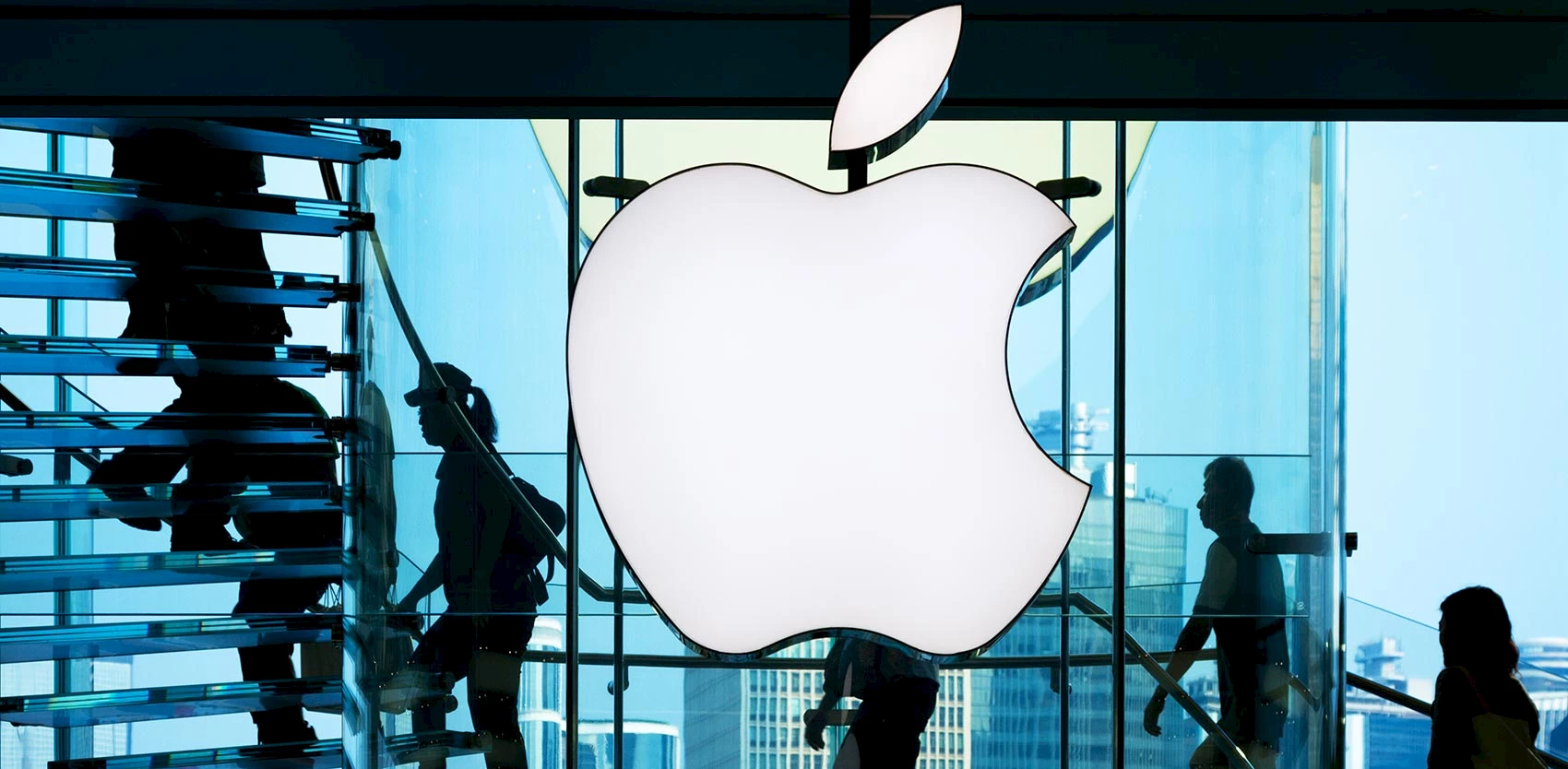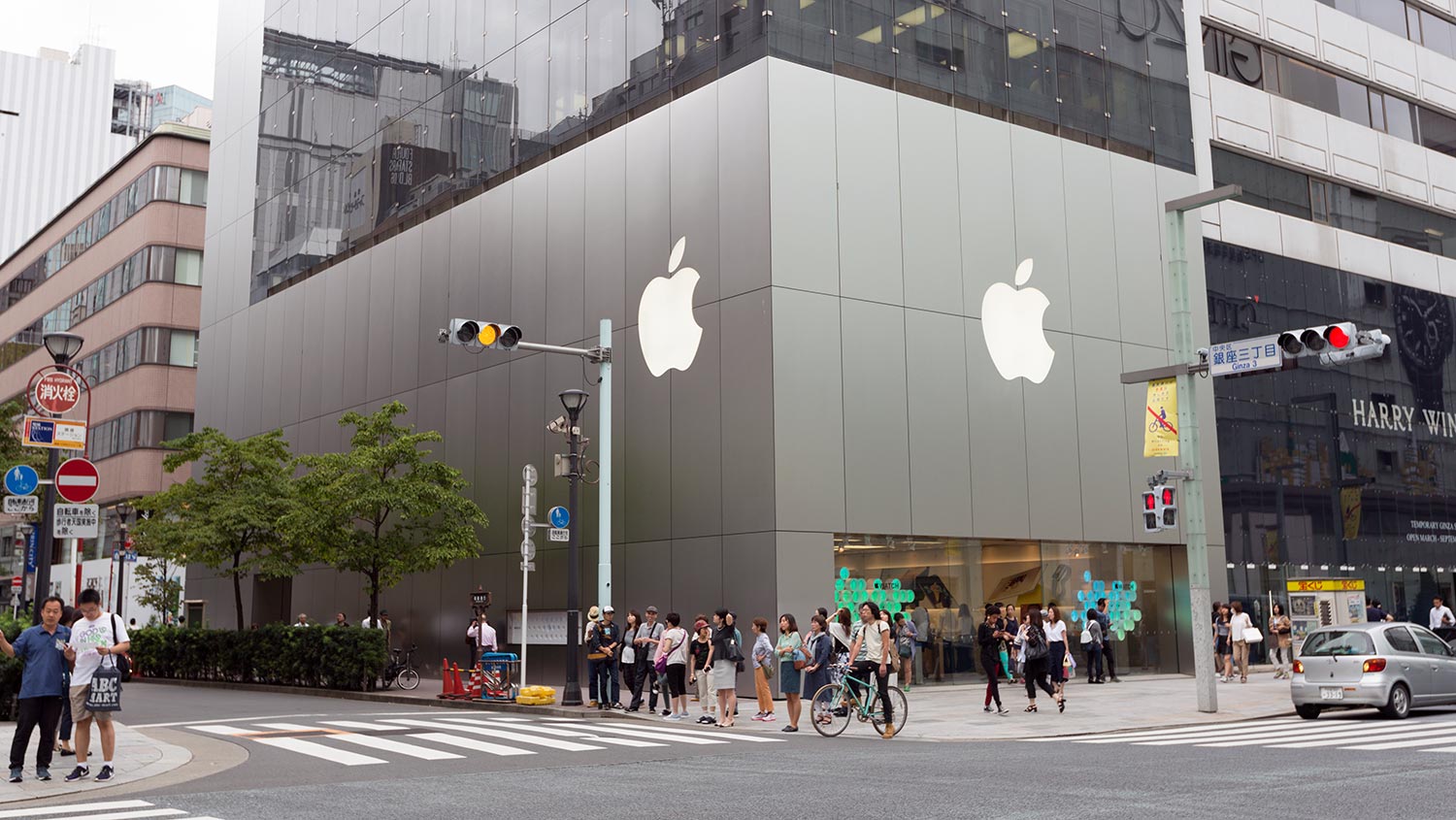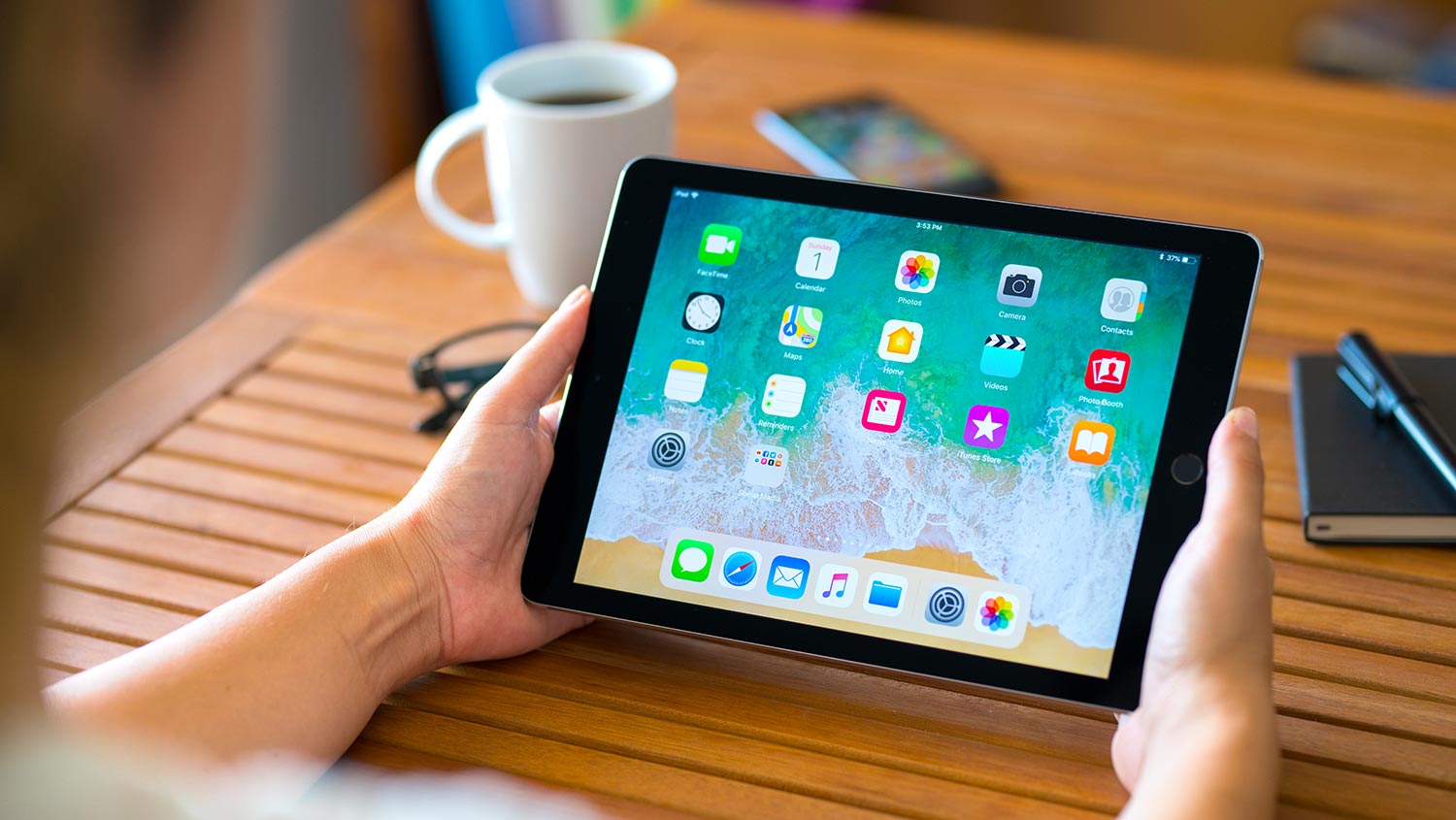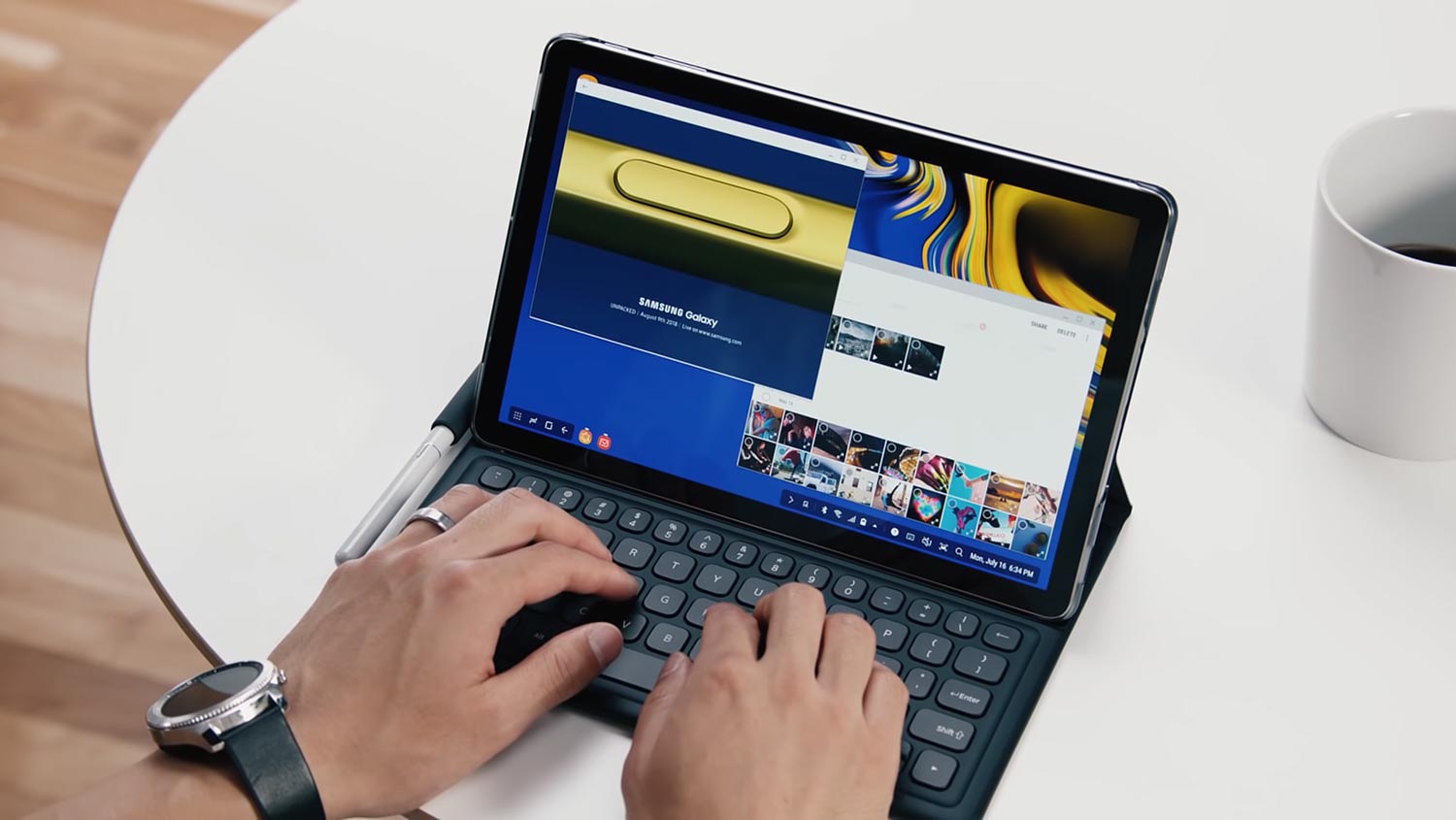Weekly Tech Recap - № 179 - Apple worth one trillion, tablet market, Samsung’ Tab S4, Naked 3D Scanner, etc.

The Apple worth one trillion dollars

Apple Store in Ginza, Tokyo, Japon. © iStock/Getty.
In the late morning of Thursday, August 2, 2018, Apple made history when its share price hit US$207.05 on Wall Street, becoming the first company to ever be worth one trillion (1012) dollars. Not bad for a company that was on the verge of bankruptcy in the late 1990s, when its founder, Steve Jobs, stepped in to save it, and launched a series of products — the iMac, iPhone and iPad — that transformed the company and changed the world.
Over the last 12 months, Apple generated 255 billion dollars of revenue and 56 billion dollars in profits. It also posted six straight quarters of accelerated sales growth, thanks to the iPhone X, to services like the App Store, Apple Music and iCloud, and to its “wearables”, like the Apple Watch and AirPods. iPhone-related revenue was up by 20% over the last quarter, to almost 30 billion dollars, despite stagnant sales, reflecting the success of the iPhone X, a much more expensive device than its predecessors (US$999 and up). With a market capitalisation of US$884.01 billion dollars, Amazon is Apple’s closest rival, while Google Alphabet is third with US$854.86 billion, and Microsoft fourth, with US$827.53 billion dollars.
Remember Ronald Wayne, who cofounded Apple Computer with Steve Wozniak and Steve Jobs. In 1976, he sold his 10% of shares to Jobs and Wozniak for US$800, then accepted US$1,500 to forfeit any claims against Apple (US$9,500 in today’s dollars). If Wayne had kept his 10% stake in Apple, he would now be worth 100 billion dollars, i.e. more than Bill Gates.
⇨ Recode, “It’s official: Apple is the first U.S. public company to reach a $1 trillion market value.”
Tablet market in retreat

iPad Air 2. © iStock/Getty.
The worldwide tablet market has been declining for the last 4 years, and the second quarter of 2018 did nothing to reverse the trend. In fact, only Apple and Huawei were able to post modest growth, according to IDC’s latest report. The number of worldwide shipments was 33 million units over the last quarter, 5 million less than in the same quarter last year. In just one year, Amazon Fire lost one-third of its market share and Samsung sales have plummeted by 16%. And the only two companies that showed any growth had nothing to brag about, with Huawei posting a modest 7.7% increase and Apple just 0.1%, for its iPad. However, Apple ranks first in shipment volume, with 11.5 million units in just one quarter, which is 35% of total tablet shipments.
⇨ The Verge, “Global tablet sales decline, with only Apple and Huawei showing growth.”
Samsung’ Tab S4

Galaxy Tab S4. © Samsung.
Samsung launched its nifty Tab S4, the successor to last year’s S3. The S4 works in both classic touchscreen tablet and desktop modes thanks to Dex software that allows you to connect it to a keyboard, a mouse and a monitor, while offering an adapted interface. The S4 has a 10.5-inch, 2560x1600, 16:10 Super AMOLED display. It runs on Android 8.1 Oreo and a next-generation Snapdragon 835 processor, and includes 4GB of RAM and two 13 megapixel cameras, front and back. Battery life is claimed to be 16 hours (7,300mAh). LTE-connected models should be available soon. The Tab S4 will be for sale as of August 10 for US$650 (64GB) or US$750 (256GB). An S Pen is included. Hopefully, this tablet will reverse Samsung’s dwindling tablet sales.
⇨ Ars Technica, “Samsung’s Tab S4 is both an Android tablet and a desktop computer.”
Google makes a pact with Chinese censors

Shanghai, China. © iStock/Getty.
Last May, Google removed its long-time unofficial motto, “Don’t be evil”, from the company’s corporate code of conduct. Just wait until you know why. To satisfy the Chinese government’s strict Internet censorship rules, Google has developed a custom, China-only Android search application that blocks any Web content related to human rights, peaceful protests, political dissidents, democracy, police brutality, religion and many other topics. A custom mobile application is also being readied to aggregate just the news that is compatible with the official Party line. The Google News application will be fed content selected by artificial intelligence rather than human editors, providing personalized content to users. It looks like greed trumps ethics once again.
⇨ Mashable, “Leaked document shows Google’s plans for its censored search engine in China.”
⇨ Mashable, “Google is developing a censored news app for China.”
A mirror that looks back at you

Naked 3D Scanner. © Naked Labs.
The Naked 3D Scanner is a mirror that creates a 3D clone of your body. The integrated computer scans your body to produce some 4GB of data, compresses it down to a 4MB 3D model, then sends it to a mobile application that lets you see the changes in your body over time, which can be motivating for those who are reaching for physical goals like weight loss, sports prowess, or body building. But the goal isn’t just to provide you with a deluge of fitness-related information; in the long term, the company hopes to help you buy clothes, aid in the production of furniture tailored to your body, and even provide a perfectly lifelike avatar for video games. The mirror sells for US$1,400.
⇨ Mashable, “This actual black mirror could help you lose weight.”
